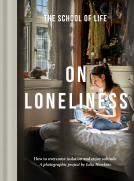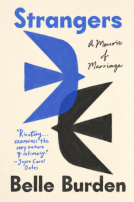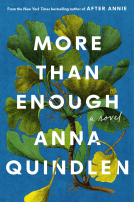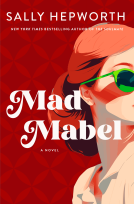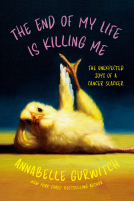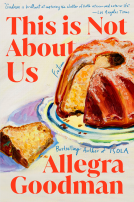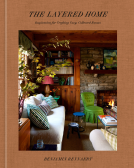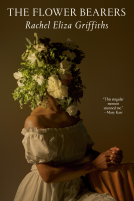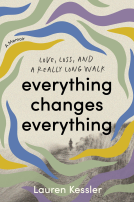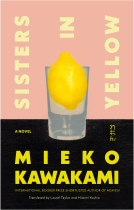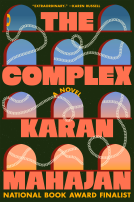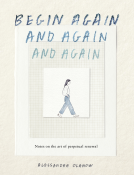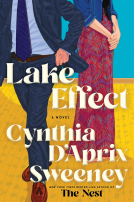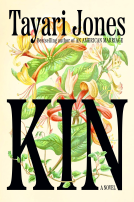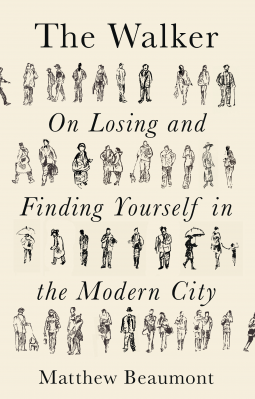
The Walker
On Finding and Losing Yourself in the Modern City
by Matthew Beaumont
This title was previously available on NetGalley and is now archived.
Send NetGalley books directly to your Kindle or Kindle app
1
To read on a Kindle or Kindle app, please add kindle@netgalley.com as an approved email address to receive files in your Amazon account. Click here for step-by-step instructions.
2
Also find your Kindle email address within your Amazon account, and enter it here.
Pub Date Nov 10 2020 | Archive Date Nov 10 2020
Verso Books (US) | Verso
Talking about this book? Use #TheWalker #NetGalley. More hashtag tips!
Description
“A labyrinthine journey into the literature of walking and thinking,” as seen in the lives and works of Edgar Allan Poe, Virginia Woolf, Ray Bradbury, and other literary greats (Guardian).
There is no such thing as a false step. Every time we walk we are going somewhere. Especially if we are going nowhere. Moving around the modern city is not a way of getting from A to B, but of understanding who and where we are. In a series of riveting intellectual rambles, Matthew Beaumont retraces episodes in the history of the walker since the mid-19th century.
From Dickens’s insomniac night rambles to restless excursions through the faceless monuments of today’s neoliberal city, the act of walking is one of self-discovery and self-escape, of disappearances and secret subversions. Pacing stride for stride alongside literary amblers and thinkers such as Edgar Allan Poe, André Breton, H. G. Wells, Virginia Woolf, Jean Rhys and Ray Bradbury, Beaumont explores the relationship between the metropolis and its pedestrian life.
Through these writings, Beaumont asks: Can you get lost in a crowd? What are the consequences of using your smartphone in the street? What differentiates the nocturnal metropolis from the city of daylight? What connects walking, philosophy and the big toe? And can we save the city—or ourselves—by taking to the pavement?
Available Editions
| EDITION | Other Format |
| ISBN | 9781788738910 |
| PRICE | $29.95 (USD) |
| PAGES | 352 |
Average rating from 16 members
Featured Reviews
I really enjoyed this academic writing about walking. It was professionally described from many different angles and points of view. The amount of writers, who were taken into account while discussing the walking is vast and impressive- Skakespeare, Dickens, Plato, Nietzsche- just to mention a few. I would strongly recommend it to anybody who likes dissertations and is passionate about academic reading. Enjoy!
<i>"Isn't it really quite extraordinary to see that, since man took his first steps, no one has asked himself why he walks, how he walks, if he has ever walked, if he could walk better, what he achieves in walking?"</i>
—
Slowly coming out of a long period of nationwide lock-down and self-quarantine, simply going out on a stroll in the city has taken on a strange, elating, fresh importance. As I walked in the re-awakening streets, I found myself thinking about this book that nudges the walker to think more about each step we take, elevating walking into a meditation.
Anchored in great works of literature, The Walker is undoubtedly an incredibly well researched book that takes a philosophical deep-dive into the meaning of modernity on the urban space from a pedestrian point of view.
This work weaves through all the themes that impact the psychology of walking: literature, of course, but also architecture, technology, philosophy, society, economy and politics.
However, it does feel a lot more academic than your average non-fiction books, and it is surely a densely informational read that might be difficult to get through at times.
If nothing else, this book will add some valuable new entries to your future TBR list with its wide range of great literary references.
 Bethany Y, Reviewer
Bethany Y, Reviewer
I liked this overall and it was interesting to see the idea of the flaneur through multiple authors' eyes and from various time periods. I liked the writing style and how the quotes was embedded in the writing well. The city was shown in many way and through various eyes and this showed the city as an ever changing thing. This book was fascinating and interesting overall.
 Abby S, Reviewer
Abby S, Reviewer
A fascinating book a book that caught my attention from the first pages.The art of walking thoughts as you walk through eyes of many different people A book I will be recommending,#netgalley#versobooks
Highly enjoyable, despite being an academic reading not easy to classify. I particularly liked the way Beaumont structured the chapters, focusing on different types of walking the city (convalescing, fleeing, collapsing, etc.) with relevant examples from various works of fiction.
Very well researched and quite dense, I have to admit that the parts that shifted from literature were not as exciting for me, personally. However, it brought to my attention many interesting books and authors.
I enjoyed it. However, it was much more cerebral than I anticipated. It was dense with intellectual theory on the benefits of walking. I enjoyed his literary references from Charles Dickens, Edgar Allen Poe, Virginia Woolf, Jean Rys, Ray Bradbury.
"Dickens compares himself to the restlessness of a great city the way it tumbles and tosses before it can go to sleep."
"Every nightwalk is thus a fugue or psychogenic flight-an escape from the self and at the same time-a plunge into its depths."
I enjoyed the psychological perspective of the mental benefits of walking. I am a distance walker, and at times, I feel as though I am walking aimlessly. I felt this book explained the purpose of walking aimlessly, as a means of self reflection and the fact that "compulsive wandering is linked to compulsive wondering."
Thank you NetGalley and Verson for the opportunity to read this delightful book!
jb
https://seniorbooklounge.blogspot.com/
Thank you to the author, Verso Books and NetGalley for an ARC in exchange for an honest review.
I wanted to like this book - I tried so very hard to get into it, and to like it... but it was too much for me. Too dense, too academic, too much literary criticism and not enough real life. I am sure this will find its audience of enthusiastic readers, but the description led me to expect something different, and what I got was not something I would read, given the choice. I slogged through it due to my feeling of responsibility, having received an ARC and all, but the only part that I really enjoyed was the Afterword, with the author giving his own perspective, exploration and thoughts, rather than an academic treatise on works of classic literature.
Very original work, slow-read but inspiring. It is a compilation of earlier essays, and the reader should be aware that the author is focused rather on literary criticism than the walking itself, with references to writers from Dickens to Wolf to Bradbury. There are also some personal recollections but the style of this book is mostly academic.
Thanks to the publisher, Verso Books, and NetGalley for an advanced copy of this book.
Readers who liked this book also liked:
Annabelle Gurwitch
Biographies & Memoirs, Health, Mind & Body, Humor & Satire
Benjamin Reynaert
Arts & Photography, Home & Garden, Reference
Alessandra Olanow
Arts & Photography, Religion & Spirituality, Self-Help
